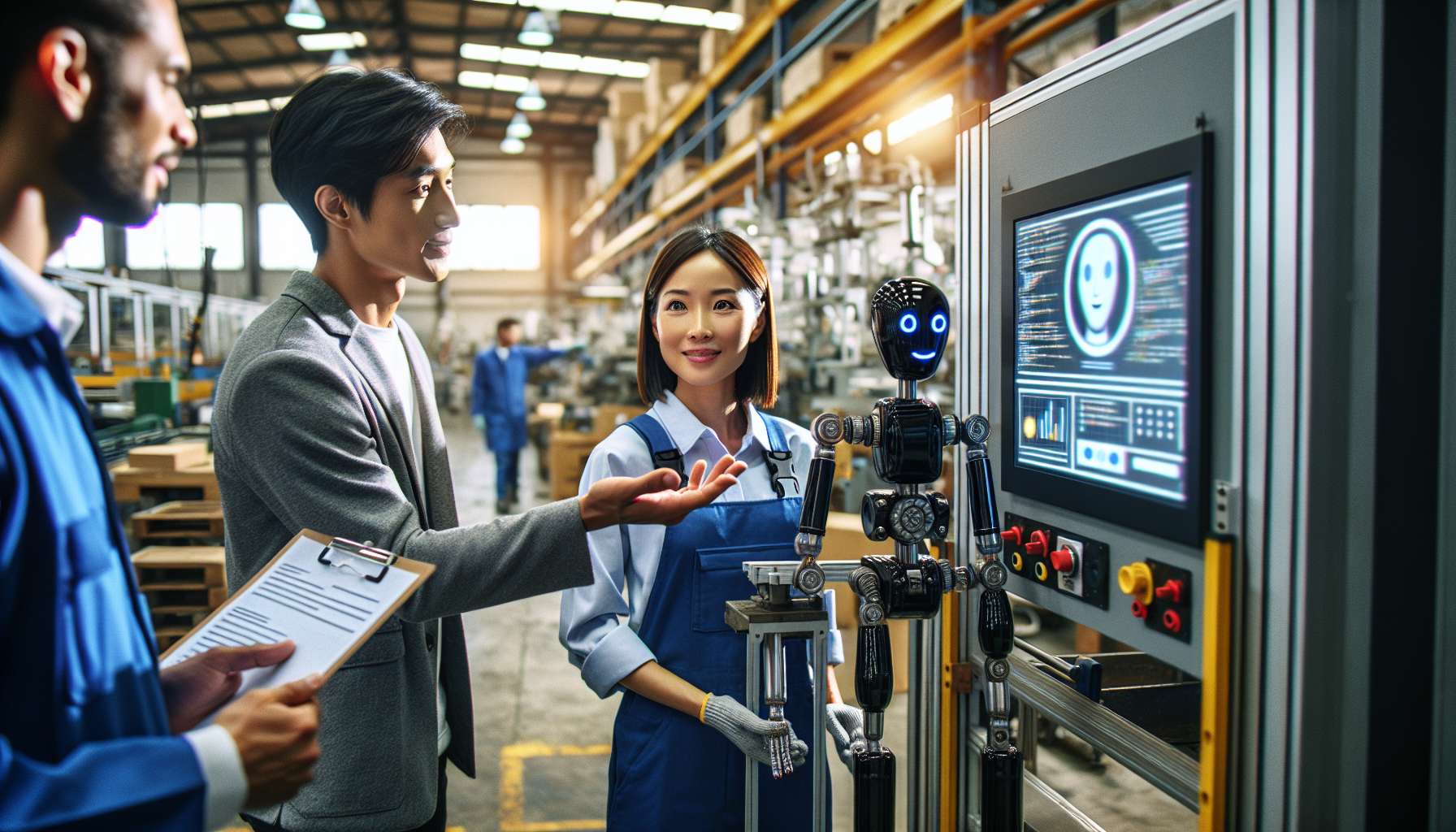Unlocking Manufacturing Efficiency with AI-Powered Assistants
Artificial Intelligence (AI) has become a game-changer in various industries, and manufacturing is no exception. With the advent of AI-powered assistants, manufacturers can now streamline their processes, boost productivity, and achieve unprecedented levels of efficiency. In this article, we will explore five key ways AI assistants are revolutionizing manufacturing efficiency.
1. Intelligent Production Planning
AI assistants are capable of analyzing vast amounts of data and generating actionable insights to optimize production planning. By considering factors such as demand forecasts, resource availability, and machine performance, these assistants can create highly efficient production schedules. This not only minimizes downtime but also ensures that resources are utilized optimally, leading to increased productivity and reduced costs.
2. Predictive Maintenance
One of the most significant challenges in manufacturing is equipment breakdown, which can result in costly downtime. AI assistants leverage machine learning algorithms to monitor equipment performance in real-time and predict potential failures. By analyzing data from sensors and historical maintenance records, these assistants can identify patterns and alert maintenance teams before a breakdown occurs. This proactive approach to maintenance minimizes unplanned downtime, extends equipment lifespan, and reduces maintenance costs.
3. Quality Control and Defect Detection
Ensuring product quality is crucial for any manufacturing operation. AI assistants equipped with computer vision technology can detect defects and anomalies in real-time, significantly improving quality control processes. By analyzing images or video streams from production lines, these assistants can identify deviations from the desired specifications and alert operators immediately. This enables manufacturers to take corrective actions promptly, reducing waste and enhancing overall product quality.
4. Supply Chain Optimization
AI assistants play a vital role in optimizing the supply chain, a critical aspect of manufacturing efficiency. By analyzing historical data, market trends, and external factors, these assistants can predict demand fluctuations and optimize inventory levels. They can also identify potential bottlenecks in the supply chain and suggest alternative sourcing options or transportation routes. By streamlining the supply chain, manufacturers can reduce costs, minimize lead times, and improve customer satisfaction.
5. Enhanced Worker Safety
Worker safety is a top priority in manufacturing environments. AI assistants equipped with computer vision and sensor technologies can monitor workers’ activities and identify potential safety hazards. For example, they can detect if a worker is not wearing the required protective gear or if they are in a hazardous area. These assistants can then issue real-time alerts to both the worker and the supervisor, preventing accidents and ensuring a safer work environment.
In conclusion, AI-powered assistants are transforming manufacturing efficiency by revolutionizing production planning, enabling predictive maintenance, enhancing quality control, optimizing the supply chain, and improving worker safety. By leveraging the power of AI, manufacturers can unlock new levels of productivity, reduce costs, and stay ahead of the competition. Embracing AI in manufacturing is not just a trend; it is a strategic move towards a more efficient and profitable future.





